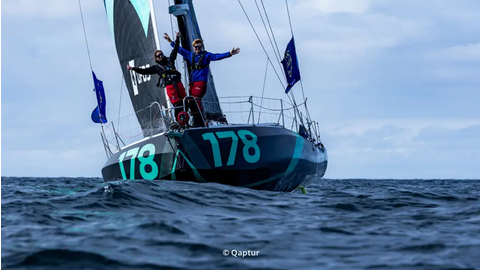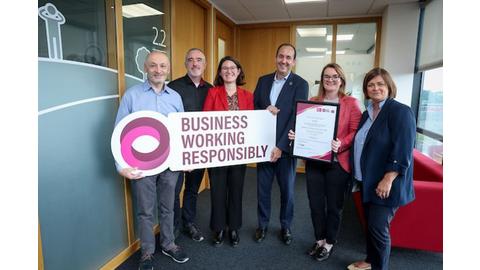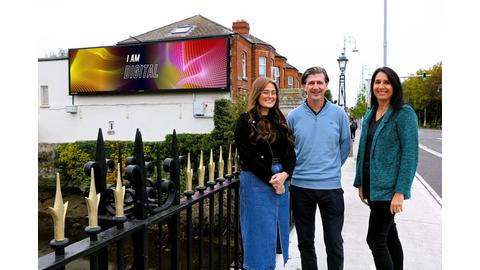Members
Veolia joins Ellen MacArthur Foundation’s New Plastics Economy initiative

Veolia has joined the New Plastics Economy initiative, which is led by the Ellen MacArthur Foundation, as a Core Partner. The New Plastics Economy is an ambitious, three-year initiative to build momentum towards a plastics system that works. Applying the principles of the circular economy, the initiative brings together leading companies, cities, philanthropists, policymakers, academics, students, NGOs, and citizens to rethink and re-design the future of plastics, starting with packaging.
The initiative builds on the recommendations of the report ‘The New Plastics Economy: Rethinking the future of plastics’ issued by the Ellen MacArthur Foundation and World Economic Forum, at the Annual Meeting in Davos in January 2016. The report provided the first comprehensive view of the global plastic packaging value chain, highlighting its contributions but also revealing significant drawbacks. With material value loss running at $80- 120 billion a year in the industry and negative environmental externalities costing at least $40 billion a year – a figure greater than the plastic packaging industry’s profit pool – the opportunity for the global economy of transforming the system is clear. The New Plastics Economy initiative takes a concrete first step towards the design of a plastics system grounded in circular economy principles.
“This new initiative is set up for three years, reflecting the scale of the challenge to mobilise over time a fundamental, system wide transformation. It seeks to create a shared sense of direction, to spark a new wave of innovation and to move the plastics value chain – starting with plastic packaging – into a positive spiral of value capture, stronger economics, and better environmental outcomes. We are delighted to have Veolia, with its resource management expertise, join as a Core Partner of the initiative,” said Dame Ellen MacArthur.
As a Core Partner, Veolia will contribute to shaping the work programme and selecting the projects and pilots, through participation in the advisory board. Veolia looks forward to working with this unique group of stakeholders from across the global plastics value chain on select workstreams and innovation projects.
“It will take a concerted effort involving various stakeholders to make the systemic changes needed to transition to a circular economy,” said Antoine Frérot, Chairman and CEO of Veolia. This is especially true for plastics. Veolia believes that the New Plastics Economy initiative provides an excellent platform for this collaboration”.
With an explicitly systemic and collaborative approach, the New Plastics Economy initiative focuses on five interlinked and mutually reinforcing building blocks:
· Dialogue mechanism – Bringing together for the first time a group of leading companies and cities across the global value chain to complete collaborative demonstration projects and inform the other building blocks
· Global Plastics Protocol – Re-thinking plastic packaging materials, formats and after-use systems and standards to provide a common target state to innovate towards, to overcome existing fragmentation and enable the creation of effective markets
· Innovation moon-shots – Mobilising targeted innovations that can scale across the system, to re-define what’s possible and create the conditions for a new economy Press Release Paris, 21 June 2016
· Evidence base – Closing critical knowledge gaps by building an economic and scientific evidence base from which to draw insights
· Outreach – Engaging a broad set of stakeholders, including citizens, educators, students, policymakers, NGOs, and industry associations in the redesign of a better system.
Notes to editors
Veolia group is the global leader in optimized resource management. With over 174 000 employees worldwide, the Group designs and provides water, waste and energy management solutions that contribute to the sustainable development of communities and industries. Through its three complementary business activities, Veolia helps to develop access to resources, preserve available resources, and to replenish them.
In 2015, the Veolia group supplied 100 million people with drinking water and 63 million people with wastewater service, produced 63 million megawatt hours of energy and converted 42.9 million metric tons of waste into new materials and energy. Veolia Environnement (listed on Paris Euronext: VIE) recorded consolidated revenue of €25 billion in 2015. www.veolia.com
The Ellen MacArthur Foundation was created in 2010 to accelerate the transition to a circular economy. The Foundation’s work focuses on four areas: insight and analysis, business and government, education and training, and communication. With its Knowledge Partner, McKinsey & Company, the Foundation works to quantify the economic potential of the circular model and to develop approaches for capturing this value. The Foundation collaborates with its Global Partners (Cisco, Google, H&M, Intesa Sanpaolo, Kingfisher, NIKE, Inc., Philips, Renault, Unilever), and its CE100 network (businesses, universities, innovators governments, cities and affiliate organisations), to develop circular business initiatives and build capacity. The Foundation is creating a global teaching and learning platform on the circular economy, encompassing work with leading universities, schools and colleges, and online events such as the Disruptive Innovation Festival. The Foundation communicates cutting edge ideas and insight through its circular economy research reports, case studies and books, and on Circulate, an online portal dedicated to providing news and unique insights on the circular economy and related subjects. Follow the Ellen MacArthur Foundation on @circulareconomy
For more information, please read the global press release here


